






Whatsapp Group+91 98450 81888
HOME REMEDY IN INDIA
MANGALORE.INDIA
Hands that serve are Holier than Lips that Pray
Urinating Frequently at Night (Nocturia)?
Here's What You Should Do
Getting up to the toilet in the middle of the night to urinate is quite common especially among the elderly. Many people consider this as part of normal aging. One episode of night urination is considered within normal limits. But if you are urinating more frequently than this, then you may be suffering from nocturia, and it could be a sign of a more serious problem or disease.
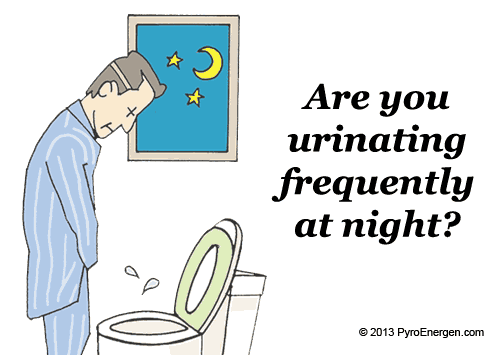
What Causes Frequent Urination?
First, let's talk about frequent urination that affects you both day and night.
There are many different causes of urinary frequency. More often this is caused by a problem in the bladder and urethra.
1. Overactive bladder – frequency is more than 8 times a day due to sudden urge to urinate even when the bladder is not full.
2. Enlarged prostate – caused by the prostate pressing on the urethra, which prevents the bladder from emptying completely.
However, if you urinate frequently during night time only, then it can be caused by other problems. One of these is problem in the heart.
Frequent Urination at Night is a Sign of Heart Disease!
Usually at night while you sleep, your brain produces antidiuretic hormones to limit the formation of urine by the kidneys so you can get a good night's sleep.
However, for some people, this is not the case, and the amount of urine still increases at night. Why exactly would this happen?
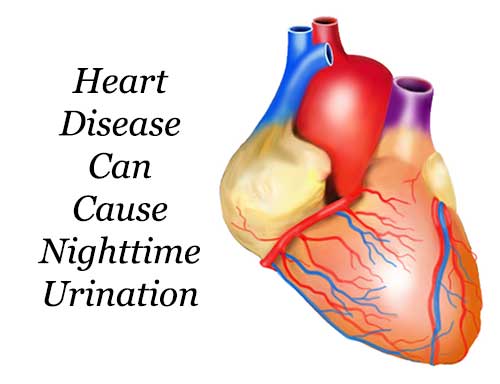
The answer has something to do with the pumping function of the heart. In essence, urine comes from the blood that has been filtered by the kidneys. If you have a heart problem, the blood pumping will be much weaker.
Now to explain it further, here's what actually happens—if the heart pumps blood at a weaker rate due to heart disease, then the blood will fail or will have difficulties to return to the heart. Swelling of the lower limbs (legs and ankles) will most likely occur as the blood pools in the extremities during the day.
At night, as the patient lies down, the blood or fluid that accumulated in the lower limbs will return to the heart. This time, the heart will need to work harder. This in turn forces the kidneys to produce more urine to decrease pressure in the heart. The result is nocturia or frequent urination at night!
Sleep Apnea Syndrome Can Trigger Nighttime Urination
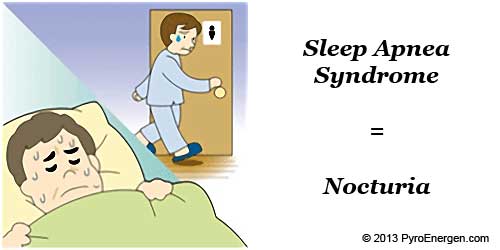
Recently, a new study found that people suffering from sleep apnea syndrome (interruption of breathing during sleep) may experience nocturia.
Here's what happens during a sleep apnea episode:
- Oxygen decreases due to obstruction of the upper airway.
- Carbon dioxide increases.
- Blood becomes very acidic.
During this time, the body is alarmed that something is wrong and forces the sleeper to wake up. The heart will begin to race and receive false signal that there is fluid overload and tell the body to urinate. This process repeats every time sleep apnea occurs.
Individuals suffering from sleep apnea rarely know that they are having difficulty breathing during sleep. So if you are urinating frequently at night, it can also be a sign that you have sleep apnea syndrome.
Treating the underlying cause of sleep apnea will help stop nocturia.
4 Things You Can Do to Cope With Nocturia
1. Avoid drinking too much liquid before bedtime, especially coffee, tea, and beer, as these beverages have diuretic effect.
2. Focus on lower leg exercise like walking or squatting 3-4 hours before you go to bed. This will help relieve swelling of the legs.
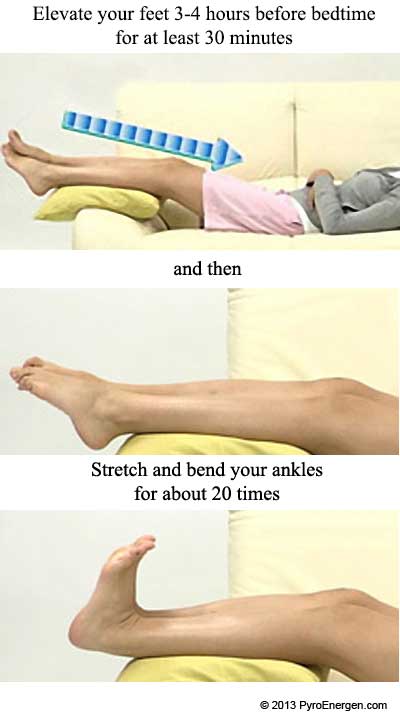
3. Lie or sit down and put your feet up 3-4 hours before bedtime so that some of the fluid in lower extremities will pass as urine before you sleep. Do this for at least 30 minutes. Stretch and bend your ankles at the same time for about 20 times while at this position.
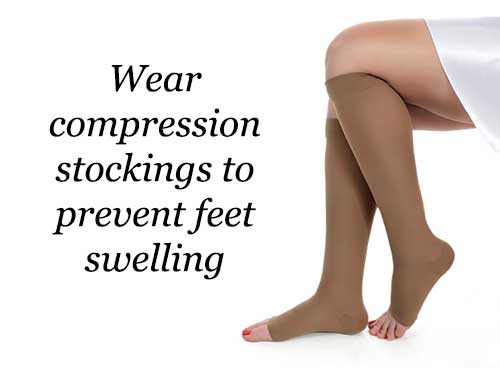
4. Wear compression stockings during the day. This will prevent swelling of legs and feet. Just make sure it is the correct size and remove the stockings once you go to bed.
Important Things to Consider if You Have Nocturia
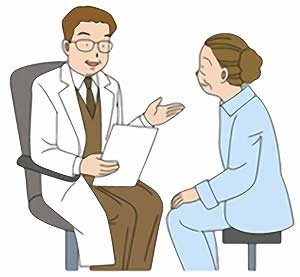
- If you have heart or kidney problems, make sure to follow the advice of your doctor.
- Elderly people should also watch their water intake and make sure that they remain hydrated. Remember that the body's thirst sensation diminishes with age.
- There are many other possible causes of nocturia, so consult a urologist for an in-depth examination.
- Consult a pulmonologist or an ENT specialist if you suspect that you have sleep apnea syndrome.
Please feel free to share any thoughts you have about nighttime urination. Post your feedback in our comments section at the bottom of this page.
_
__._,_.___
Posted by: =?UTF-8?Q?=E2=99=A3_=E2=99=A3_=E2=99=A3M=2ED=2E_?= =?UTF-8?Q?HEGDE=E2=99=A3_=E2=99=A3_=E2=99=A3?= <hegde_csl@yahoo.co.in>
| Reply via web post | • | Reply to sender | • | Reply to group | • | Start a New Topic | • | Messages in this topic (1) |
KERALITES - A moderated eGroup exclusively for Keralites...
To subscribe send a mail to Keralites-subscribe@yahoogroups.com.
Send your posts to Keralites@yahoogroups.com.
Send your suggestions to Keralites-owner@yahoogroups.com.
To unsubscribe send a mail to Keralites-unsubscribe@yahoogroups.com.
Homepage: http://www.keralites.net
To subscribe send a mail to Keralites-subscribe@yahoogroups.com.
Send your posts to Keralites@yahoogroups.com.
Send your suggestions to Keralites-owner@yahoogroups.com.
To unsubscribe send a mail to Keralites-unsubscribe@yahoogroups.com.
Homepage: http://www.keralites.net
.
__,_._,___
No comments:
Post a Comment